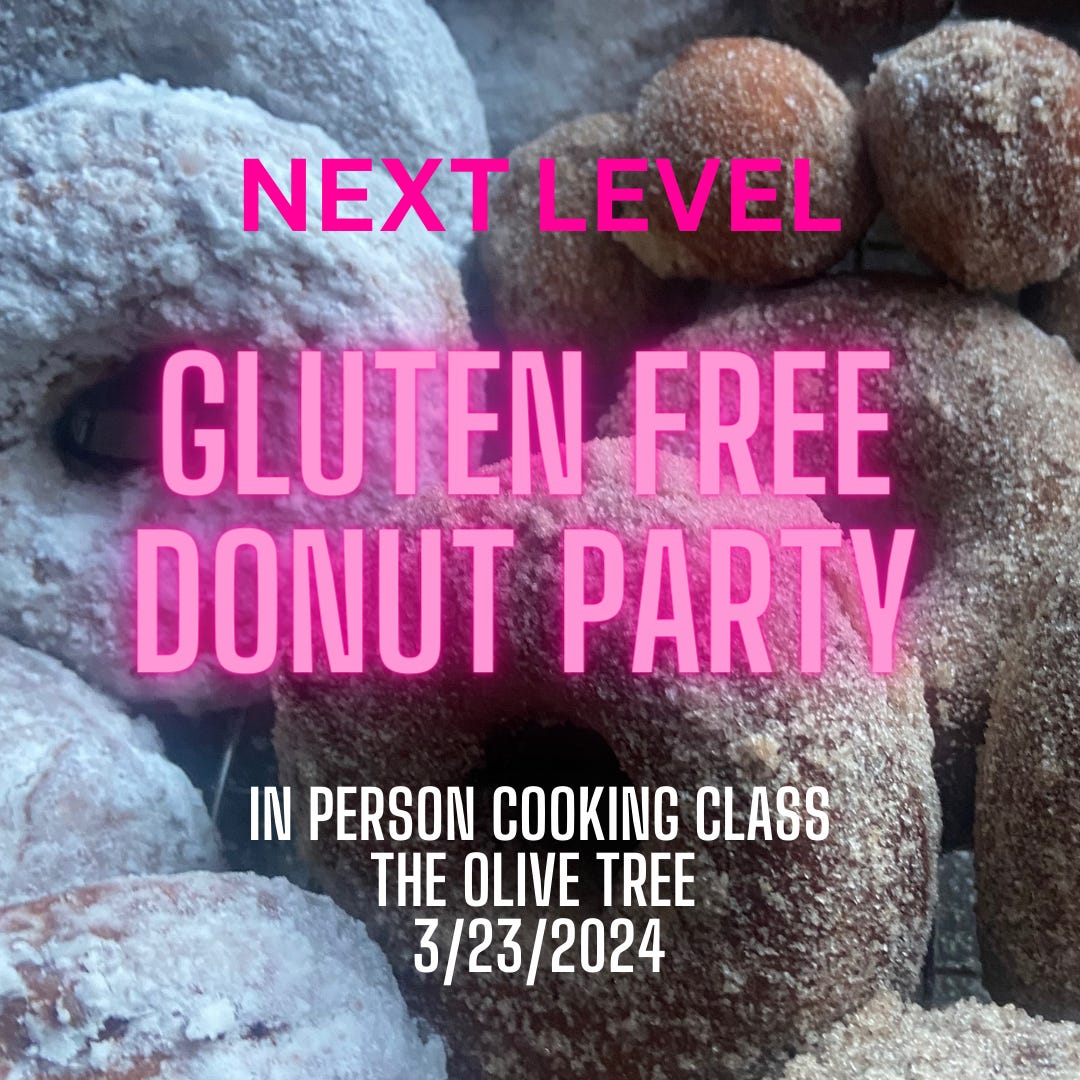Hello friends,
I have a special bonus for you today on this bonus day of the year! Heather Hausenblas PhD is a health researcher and author who writes the Wellness Discovery newsletter and has written a guest article for us today! Besides being a researcher she’s also a fellow auto-immune mom and she shared her experience with her son’s Crohn’s diagnosis and about the Specific Carbohydrate Diet, I found it fascinating, and I hope you do too!
She even gave me a special code for 25% off her newsletter https://heatherhausenblas.substack.com/89f0aa47
Take it away Heather:
When our oldest son was diagnosed with Crohn’s disease in 2018 I had to find his path back to health. I knew nothing about this disease except that food had to play some role.
So, when his nutritionist said that he could eat anything, including white bread, white crackers, and even Chick-fil-A, I knew that I needed to take charge. I’m a health researcher. My focus is curiosity and discovery. I quickly learned that there’s a growing body of research revealing that healthy diets are effective as front-line therapies for Crohn’s disease. One diet that kept coming up was the Specific Carbohydrate Diet (SCD).
The SCD is a diet that removes all grains, processed meats, dairy products (except for highly fermented yogurt), and sugar (except natural sugar from honey). The list of “illegal” foods is long. This diet isn’t for the faint-hearted.
The SCD has an interesting history. It’s been around since the 1920s and was developed by a pediatrician named Dr. Haas to treat celiac disease—a serious autoimmune disorder that affects about 1% of the population. At that time, we didn’t know what caused celiac disease. Not surprisingly, it had a high death rate. Dr. Haas proclaimed he cured patients of celiac disease by using a diet that excluded all carbohydrates except for bananas, specifically those with black spots on their skins. In other words, really ripe bananas – the kind I tend to throw in the garbage or use for banana bread. Also excluded from this diet were breads, crackers, potatoes, and all cereals.
This diet gained acceptance and popularity. Hass believed that complex carbohydrates, such as starch, were the culprits. Ripe bananas contain nearly no starch. Luckily for children with celiac, they also contain no gluten. Dr. Haas hadn’t identified gluten as the culprit, but his success with this diet occurred because it didn’t contain gluten.
For decades, the SCD enjoyed wide popularity. Why? Because it worked. It benefited many and probably prevented many deaths. It would take the bread shortages caused by World War II for gluten to be proven as the issue with celiac disease.
Dr. Haas was intuitive. He didn’t restrict the diet to only celiac patients. He also prescribed it for patients with a variety of intestinal issues, including inflammatory bowel disease (IBD). Celiac disease is a risk factor for IBD and, to a lesser degree, patients with IBD have an increased risk of celiac disease. The SCD got my son on the road to recovery. And within the last decade, research has found positive evidence behind this diet.
I also started keeping a food journal of what he was eating and how he felt. Because many of us struggle to accurately gauge our food intake and its effects, keeping a food journal is beneficial. On average, people report eating 20% less than they actually do. And many people have an interest in journaling about their health, with almost 70% of American adults tracking at least one health behavior. The most common behaviors tracked are weight, diet, and exercise routine.
Whether you’re on a specific diet or eating gluten-free, remember: health is a journey. Research and our health evolve together.
To learn more, check out my Substack posts (https://heatherhausenblas.substack.com/) where I separate health and wellness fact from fiction. I do the research so you don’t have to.
To learn more about the SCD or how to keep a food journal check out my books
Invisible Illness (https://www.amazon.com/dp/1737717905)
and Food (https://www.amazon.com/dp/B09LGPML2C).
Heather Hausenblas, PhD, is a health psychology expert, international award-winning scientist, public speaker, and best-selling author. Her research and writing focuses on how our daily habits impact our well-being, especially our diet, exercise, sleep, stress, journaling, and the effects of supplements on our overall health. She's ranked in the top 1% of the most influential scientists in the world.
Upcoming Cooking Classes with Rachel Ciordas of Next Level Gluten Free:
It’s a gluten free donut party! Learn my signature next level gluten free baking methods and now it’s time to make the donuts. This fun class has it all - Gluten Free Yeasted Donuts, Jelly Filled Donut Holes, Apple Cider Donuts, and even Gluten Free Funnel Cakes! (Totally a donut!) Kansas City Metro Area







While no one in my family has been on the SCD- I found the history with celiac disease fascinating!
Food heals and in this case with SCD diet, the elimination of certain foods also heals. Heather's story is a great example of why we all should be seek curiosity and discovery for our health.